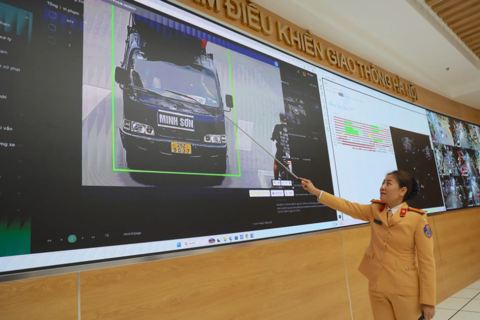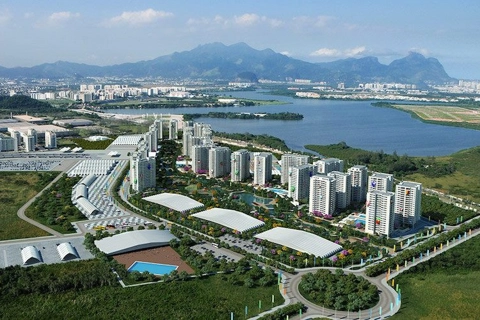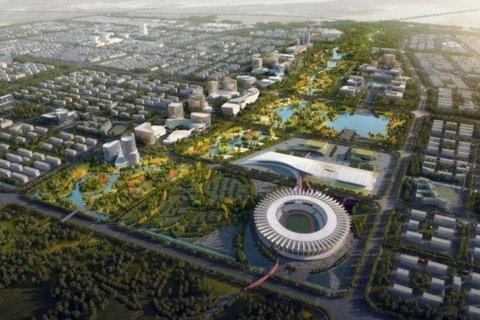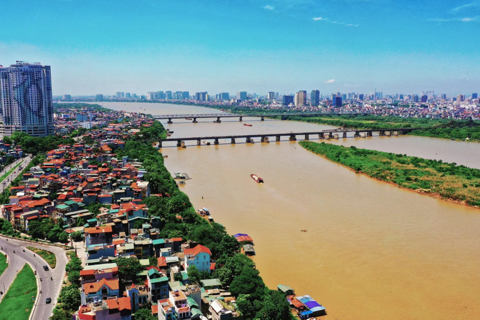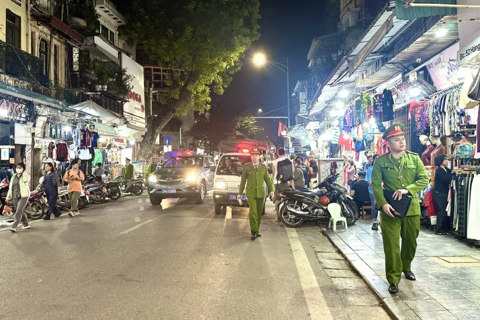Hanoi
Hanoi owns advantages to join smart urban development trend
Oct 09, 2018 / 07:59 AM
Hanoi still needs to quickly build a comprehensive architecture for a smart city, so that the city has a synchronous system of data collection, analysis and management.
Smart urban development is Hanoi’s indispensable trend and the city has many advantages to move forward in this field.
Firstly, Hanoi is the economic, political and cultural center of the country. Therefore, the Vietnamese government has paid great and timely attention to the capital city.
Secondly, Hanoi has economic potential, human resources, technical conditions for smart urban development.
Thirdly, Hanoi has strategically visionary leaders who are determined to develop a smart capital city. This is also appreciated by experts.
In fact, Hanoi has begun to put some elements of smart city into practice. For example, the iParking mobile search facility, the Timbuyt app for searching and taking buses, map for locating flooding points and so on.
However, according to Chief Architect of Viettel’s Smart City Group Le Quoc Huu, Hanoi still needs to quickly build a comprehensive architecture for a smart city, so that the city has a synchronous system of data collection, analysis and management.
Many experts said that Hanoi needs to know what technology is appropriate, how the information infrastructure will be connected to the city’s social infrastructure. Then, it can shape the essential technical foundation for smart urban development.
Besides, Hanoi needs to collect data to establish the premise for urban management, provide utmost utilities for its residents. Along with that, the city needs to have open mechanisms to ensure exchanging information and data between itself and other localities, experts added.
According to architect Phan Trong Dung from the Hanoi Institute of Construction and Planning, smart urban building is growing in the world and aligns with the urban development roadmap in Vietnam in the current period.
To promote smart urban development, the Vietnamese government needs to have strategic projects. It is necessary to develop a set of common national standards for smart city so that the cities in Vietnam can follow to implement, Dung said.
In addition, it is important to focus on staff training in the design, management and development of a multi-sectorial coordination framework, prepare financial resources for a long period of time, Dung emphasized.

Participants visited some of the applications in smart urban management. Photo: Cong Hung
|
Secondly, Hanoi has economic potential, human resources, technical conditions for smart urban development.
Thirdly, Hanoi has strategically visionary leaders who are determined to develop a smart capital city. This is also appreciated by experts.
In fact, Hanoi has begun to put some elements of smart city into practice. For example, the iParking mobile search facility, the Timbuyt app for searching and taking buses, map for locating flooding points and so on.
However, according to Chief Architect of Viettel’s Smart City Group Le Quoc Huu, Hanoi still needs to quickly build a comprehensive architecture for a smart city, so that the city has a synchronous system of data collection, analysis and management.
Many experts said that Hanoi needs to know what technology is appropriate, how the information infrastructure will be connected to the city’s social infrastructure. Then, it can shape the essential technical foundation for smart urban development.
Besides, Hanoi needs to collect data to establish the premise for urban management, provide utmost utilities for its residents. Along with that, the city needs to have open mechanisms to ensure exchanging information and data between itself and other localities, experts added.
According to architect Phan Trong Dung from the Hanoi Institute of Construction and Planning, smart urban building is growing in the world and aligns with the urban development roadmap in Vietnam in the current period.
To promote smart urban development, the Vietnamese government needs to have strategic projects. It is necessary to develop a set of common national standards for smart city so that the cities in Vietnam can follow to implement, Dung said.
In addition, it is important to focus on staff training in the design, management and development of a multi-sectorial coordination framework, prepare financial resources for a long period of time, Dung emphasized.


